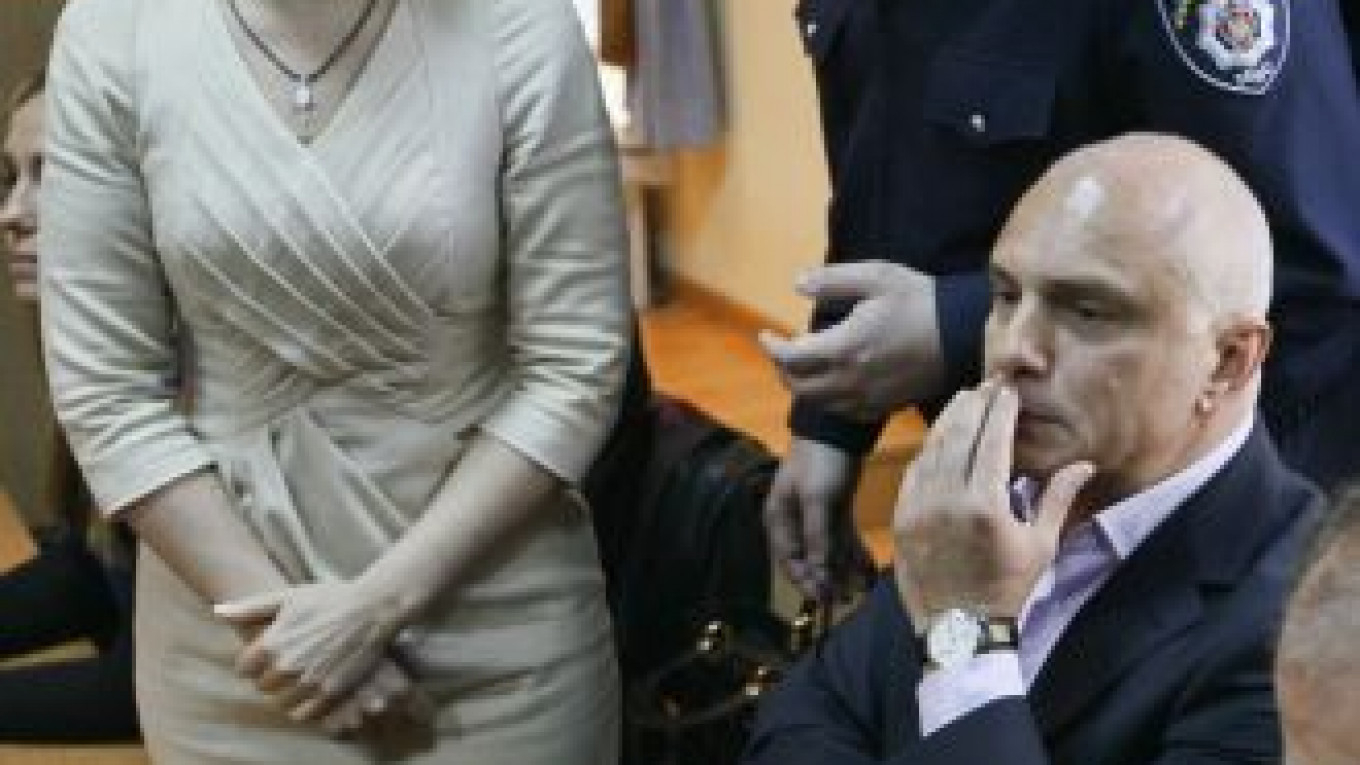The husband of jailed former Ukrainian Prime Minister Yulia Tymoshenko has been granted political asylum in the Czech Republic following the launch of a criminal investigation against him, her lawyer said.
The Czech Republic angered Ukraine last year by granting asylum to another ally of Yulia Tymoshenko, and Friday's decision to do the same for her husband, Oleksandr Tymoshenko, is likely to further strain relations.
Yulia Tymoshenko, Ukraine's top opposition leader and a former presidential candidate, was sentenced to seven years in jail in October in a trial widely condemned as politically motivated.
In December, the European Union balked at signing a landmark cooperation agreement with Ukraine over the jailing of Tymoshenko.
Her lawyer, Serhiy Vlasenko, said in remarks broadcast Friday on Russia's NTV television that Oleksandr Tymoshenko asked for asylum because he is being targeted in an ongoing probe into his wife's activities when she owned a top Ukrainian energy company.
Vlasenko said the criminal investigation into Oleksandr Tymoshenko was an attempt to increase pressure on his jailed wife.
A year ago, the republic granted political asylum to Ukraine's former Economic Minister Bohdan Danylyshin, one of Tymoshenko's allies, who was charged with abuse of office.
The move strained relations between the two countries. In May, Ukraine expelled two employees at the military section of the Czech Republic's Embassy in Kiev, accusing them of espionage.
Czech officials said that was probably prompted by Danylyshin's case. However, Czech Interior Minister Jan Kubice said Friday that he doesn't believe the decision granting Oleksandr Tymoshenko asylum will harm his country's relations with Ukraine. Kubice said Tymoshenko applied for asylum several months ago.
Jakub Kulhanek, an analyst at Prague's Association of International Affairs, said the decision is in line with Czech foreign policy, which supports opposition movements in Cuba, Belarus, Myanmar and elsewhere.
But he also said Tymoshenko, a businessman, "can hardly be called a typical political dissident."
Kulhanek said he doesn't expect serious retaliation from Ukraine, which has been trying to consolidate its relations with the European Union. At the same time, Kulhanek said, it is in the EU's interest that Ukraine is a stable country and the bloc is trying to avoid steps that would push Kiev back into Russia's orbit.
Tymoshenko's husband had attended her trial in October and may also have sought asylum in the Czech Republic for personal reasons, including the ability to publicize her case.
Earlier Friday, Czech Foreign Minister Karel Schwarzenberg confirmed Tymoshenko's husband had applied for asylum, and that ministry said in a statement that it wants to maintain good relations with Ukraine.
A Message from The Moscow Times:
Dear readers,
We are facing unprecedented challenges. Russia's Prosecutor General's Office has designated The Moscow Times as an "undesirable" organization, criminalizing our work and putting our staff at risk of prosecution. This follows our earlier unjust labeling as a "foreign agent."
These actions are direct attempts to silence independent journalism in Russia. The authorities claim our work "discredits the decisions of the Russian leadership." We see things differently: we strive to provide accurate, unbiased reporting on Russia.
We, the journalists of The Moscow Times, refuse to be silenced. But to continue our work, we need your help.
Your support, no matter how small, makes a world of difference. If you can, please support us monthly starting from just $2. It's quick to set up, and every contribution makes a significant impact.
By supporting The Moscow Times, you're defending open, independent journalism in the face of repression. Thank you for standing with us.
Remind me later.






